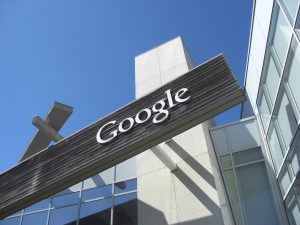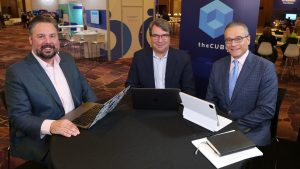The confusing case of email court rulings: Complexity in the cloud
![]() Can an entire Gmail account become evidence in a court case, or should access to personal data be limited to relevant content only? The question is one of privacy rights, and has garnered contracting rulings in several courts across America.
Can an entire Gmail account become evidence in a court case, or should access to personal data be limited to relevant content only? The question is one of privacy rights, and has garnered contracting rulings in several courts across America.
In a money laundering hearing, New York District Judge Gabriel Gorenstein ruled that authorities can have access to a user’s entire Gmail account when a warrant is presented. The ruling set a new precedent for law enforcement’s access to a person’s data.
“In the case of electronic evidence, which typically consists of enormous amounts of undifferentiated information and documents, courts have recognised that a search for documents or files responsive to a warrant cannot possibly be accomplished during an on-site search,” Gorenstein explained.
Gorenstein’s ruling contradicts an earlier court ruling wherein a warrant to access a @mac.com email account was rejected, as its scope was too broad. The warrant did not clearly state what the federal authorities wanted to access and what the service provider, in this case Apple, should give to the authorities.
“[T]he government continues to submit overly broad warrants and makes no effort to balance the law enforcement interests against the obvious expectation of privacy e-mail account holders have in their communications,” Facciola stated.
Throughout the years, access to email has been faced with contradicting court rulings and it’s enough to confuse anyone. Here are a couple additional examples of contradictory rulings, highlighting the need for clarity when it comes to law enforcement’s access to private user data.
Accessing someone’s email could land you in jail…
In 2011, Leon Walker was doomed to prison time after he accessed his wife’s email account without permission to find out if she was cheating on him. Upon his investigation, Walker determined that his wife was having an affair with her second husband. Scorned and bitter, Walker used the information he acquired from her email account in their divorce, and gave his then wife’s first husband, who was locked in a custody battle with the wife, ammunition to try and prove neglect on the mother’s part and win the custody case.
Because of his snooping, Walker was charged with felony misuse of a computer but his lawyer tried to argue that the statute which “prohibits the unauthorized access of computers, computer programs, computers systems, and computer networks,” does not apply in his case as an email account does not fall under any of the mentioned categories.
The circuit court countered with the following statement, “Gmail is a computer system and, although the statute does not refer to email, the district court analogized the case to a felonious assault where a gun was used but an item such as a bullet or gun powder that is not specifically named in the statute harmed the victim.”
…But the cloud doesn’t count
![]() In the case of Jennings v. Jennings, the court determined that accessing someone else’s email is not illegal. The tale of Jennings v. Jennings involves a wife who used information obtained from her husband’s email account to prove infidelity and use that evidence for divorce proceedings, and a husband who filed a lawsuit against the wife, her lawyer and private investigator for violating the 1986-era Stored Communications Act (SCA) which only allows for a civil suit to proceed if the emails obtained, were accessed without authorization, were in “electronic storage.”
In the case of Jennings v. Jennings, the court determined that accessing someone else’s email is not illegal. The tale of Jennings v. Jennings involves a wife who used information obtained from her husband’s email account to prove infidelity and use that evidence for divorce proceedings, and a husband who filed a lawsuit against the wife, her lawyer and private investigator for violating the 1986-era Stored Communications Act (SCA) which only allows for a civil suit to proceed if the emails obtained, were accessed without authorization, were in “electronic storage.”
The court ruled in favor of the wife as the judges presiding over the case stated that the emails obtained by the wife were the read messages on Yahoo, which are stored in the cloud. They do not consider cloud as a form of electronic storage and added that the read emails were not backup copies.
“All of the discussions regarding backups, temporary copies, and the read/unread distinction seem to have very little to do with the way that most people perceive their use of e-mail. Ultimately, this problem is likely best resolved by the legislature, but the specifics of a politically palatable update to the SCA have yet to be fully agreed upon,” Woodrow Hartzog, a professor at the Cumberland School of Law at Samford University, said.
Technology is dynamic, it is ever changing and it is obviously causing great confusion for those who are not directly involved in it, especially magistrates or judges who needs to determine which way to go for technology-based cases.
New laws may be passed in order to address broader tech issues, but before that happens, we can expect to have more confusing cases appear in the headlines.
Privacy concerns remain
Sweeping warrants, such as the one handed down by Gorenstein, bring up issues such as time limits on access to private accounts. How can we be sure that authorities will not abuse their power, accessing email accounts long after they’ve found what they’re looking for?
“There clearly need to be limits on the scope of digital searches, whether the government is seizing a hard drive or an account with a third party,” Jim Dempsey, senior counsel at the Center for Democracy & Technology, said.
Dempsey goes on to explain that limits are not determined, and “giving the government access to everything digital is no longer an acceptable approach, even with a warrant.”
Though sweeping warrants are troubling, some believe that Gorenstein’s ruling is fair. Those siding with the judge believe there’s no difference in the police searching a person’s hard drive that may contain terabytes of data, versus a person’s email account.
The matter is still up for debate, and isn’t likely to be resolved in the near future. The number of devices used to access personal data is only growing, presenting more opportunities for law enforcement to request warrants on such devices’ storage, and more questions as to citizen privacy.
photos by rovlls and coffish via photopin cc
A message from John Furrier, co-founder of SiliconANGLE:
Your vote of support is important to us and it helps us keep the content FREE.
One click below supports our mission to provide free, deep, and relevant content.
Join our community on YouTube
Join the community that includes more than 15,000 #CubeAlumni experts, including Amazon.com CEO Andy Jassy, Dell Technologies founder and CEO Michael Dell, Intel CEO Pat Gelsinger, and many more luminaries and experts.
THANK YOU













